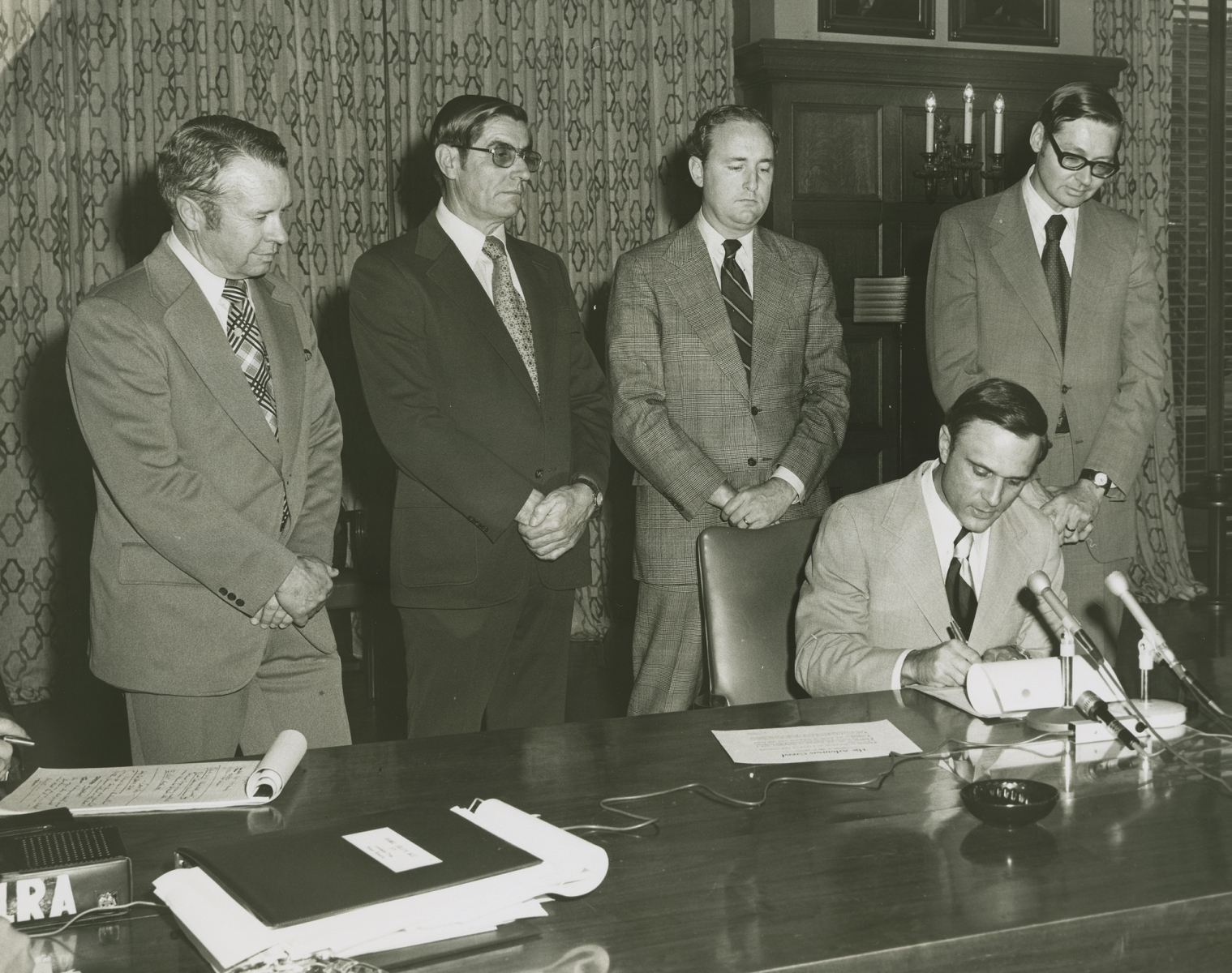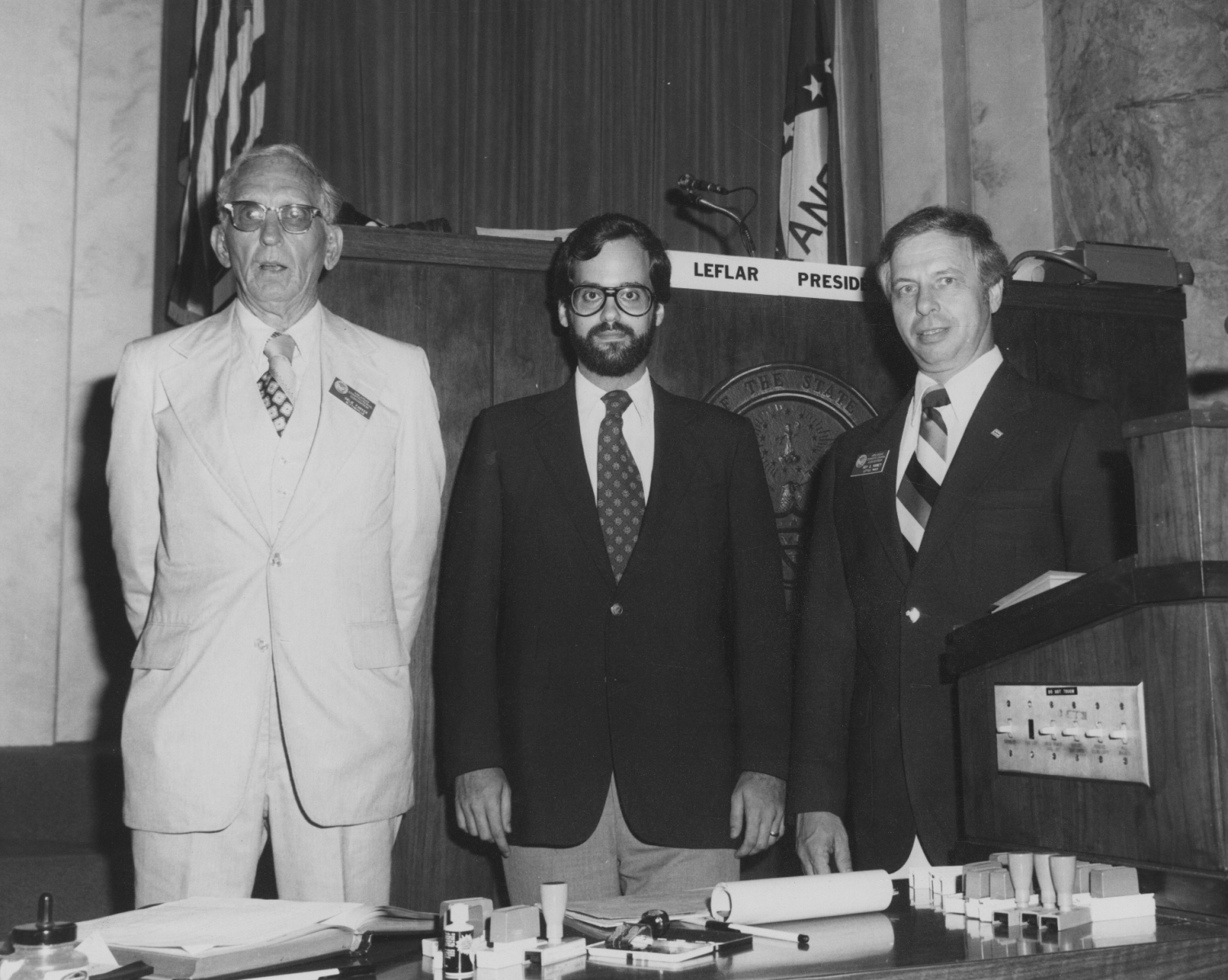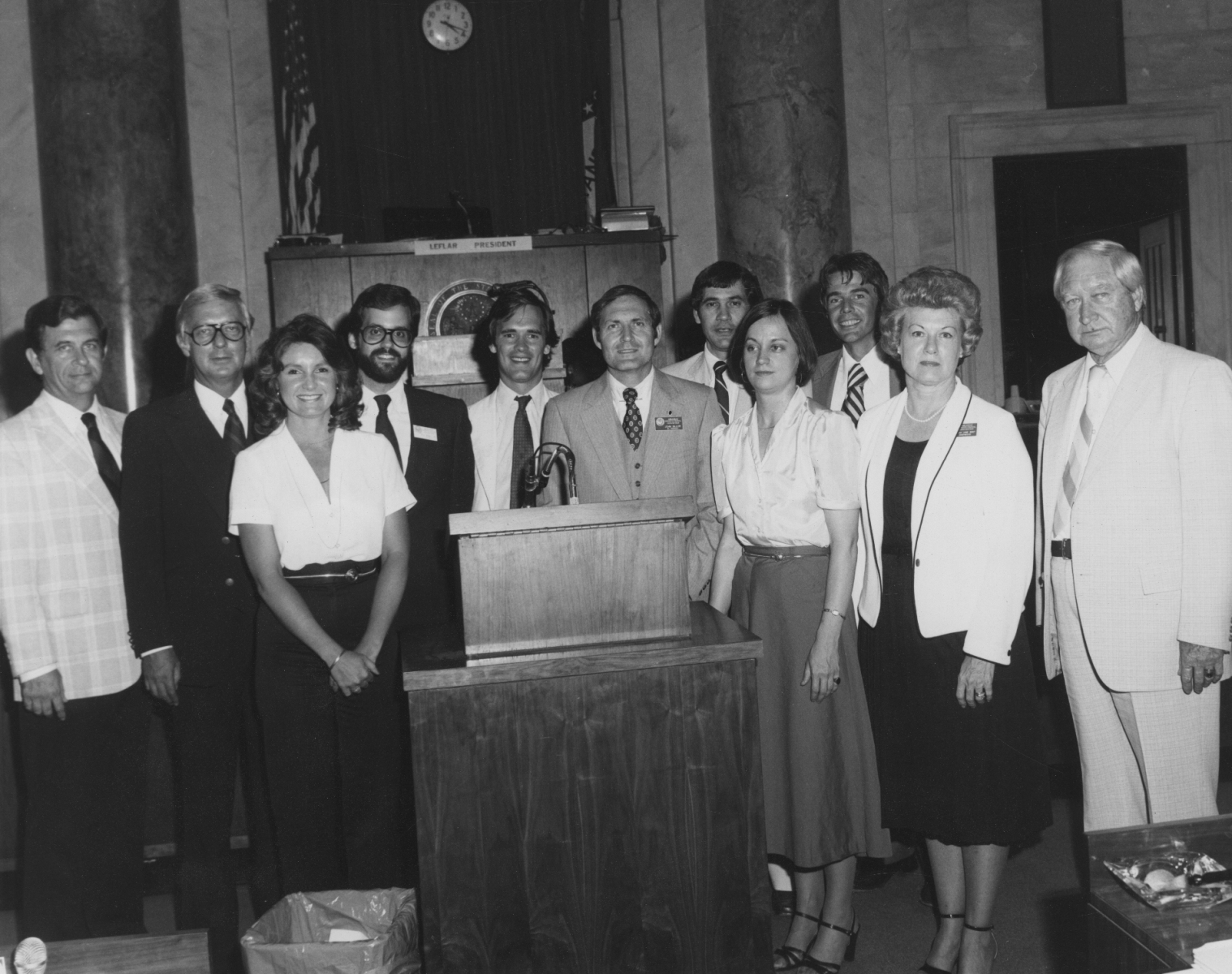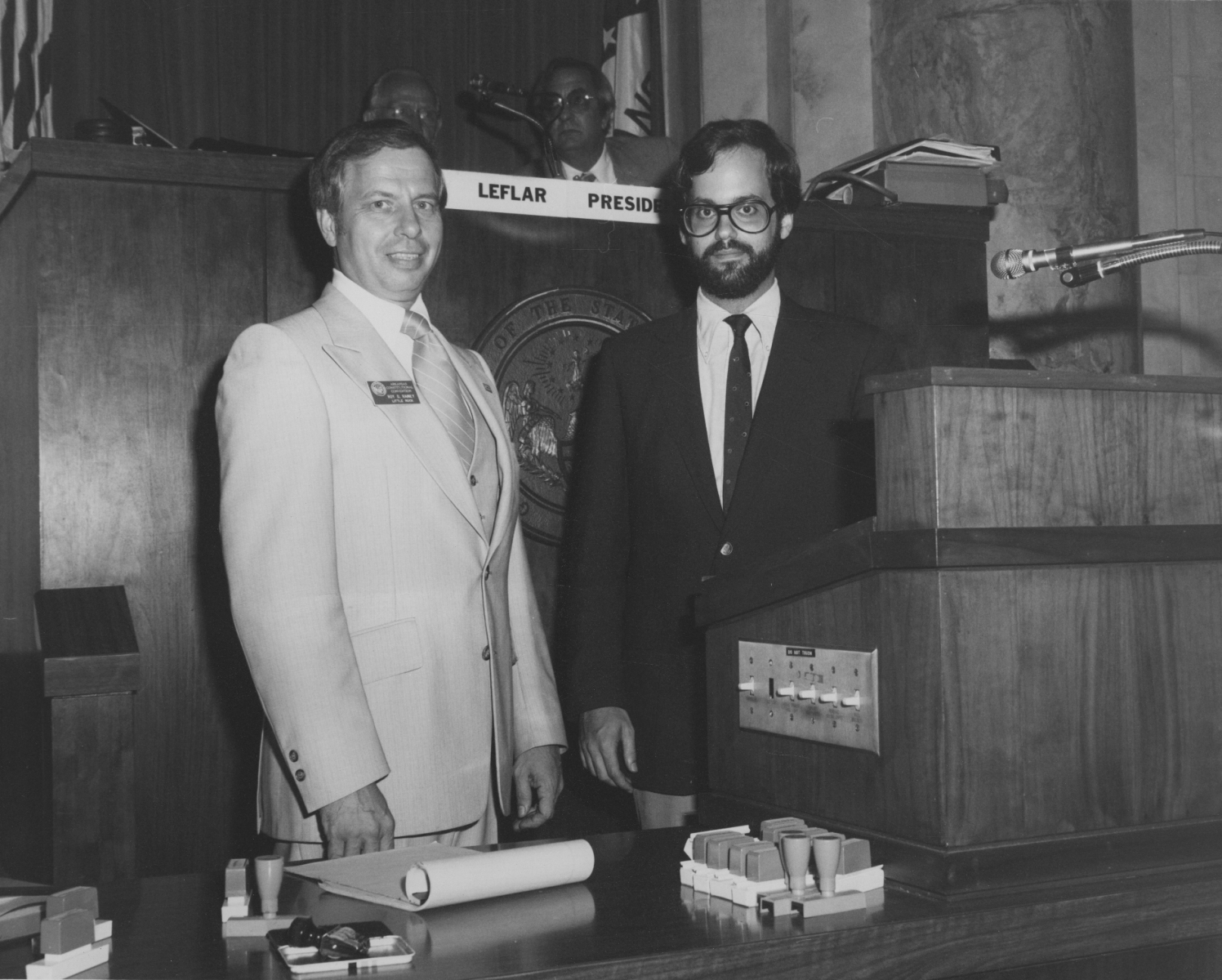Beginning the Process
By Dr. John C. Davis
Having failed in 1970 to get a majority of Arkansans to ratify a new constitution, elected officials such as David Pryor, interest group representatives, and other advocates for reform continued to advance the idea of a new constitution, albeit with a more balanced approach as to what would change and would remain from the 1874 document.
In 1974, David Pryor was elected governor and, during the 1975 General Assembly, successfully championed a proposal to once again hold a constitutional convention. However, this time, the convention delegates were to be prohibited from addressing certain issues that might have otherwise prevented risk-averse Arkansans from supporting the new document.
While only a few years out from the earlier ratification defeat of 1970, there was reason to believe Arkansans were open to the idea of a new constitution. After all, the state’s voters had granted permission to convene a convention as recently as 1968 (before voting the final product down in 1970). For one, the state’s voters liked the idea of reform but were reluctant to throw out the 1874 state constitution in its entirety. Also, considering a majority of voters approved Amendment 55 in 1974, reform was on the minds of Arkansans. However, Pryor’s attempt at a convention whereby topics for consideration were limited was successfully challenged in court and ruled unconstitutional.
Following the court ruling, the General Assembly passed a measure putting the question of calling a constitutional convention—with no prohibition on the topics under consideration—to the voters in 1976. Despite the failed ratification attempt a few years earlier, Arkansans were once again willing to consider the prospect of large-scale constitutional change, as the measure to convene a new constitutional convention passed with 57% approval. The following summer, the General Assembly—in a special session—passed legislation to facilitate the process by which a convention would be called in 1979.
Act 3 of the 1977 special session called for convening of the convention two times to conduct business and—after being amended in 1979—a third time to reconsider the convention’s work and raise public awareness before voters cast their ballots. In 1978, Arkansas voters elected 100 delegates for the convention and chose the 1980 General Election—rather than a special election—for determining the question of ratification.
The following month in December 1978, the delegates met for an organizational meeting and elected Robert A. Leflar—a professor of law who had presided over the previous convention—president and selected one vice president from each of the state’s four U.S. House of Representatives districts. Eight substantive committees were formed to address issues related to the three branches of government, suffrage and elections, local government, citizens’ rights and services, finance and taxation, and general provisions and seven procedural committees were created to facilitate the work of the convention.
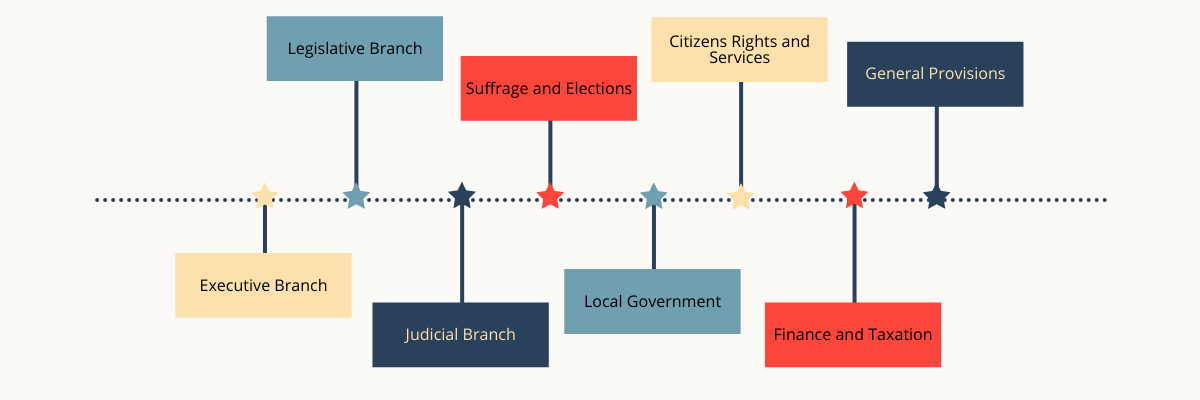
For More Information:
English, Arthur, and John J. Carroll. "Constitutional Reform in Arkansas: The 1979-1980 Convention." National Civic Review 71, no. 5 (May 1982): 240-267.
Goss, Kay. The Arkansas State Constitution: A Reference Guide. Westport, CT: Greenwood Press, 1993.
Ledbetter, Calvin R. Interview by Monica Mylonas. January 18, 2013. UA Little Rock Center for Arkansas History and Culture, Little Rock, AR.
Ledbetter, Calvin R. "The Proposed Arkansas Constitution of 1980." The Arkansas Historical Quarterly 60, no. 1 (2001): 53-74.
Pryor v. Lowe, 258 Ark. 188, 523 S.W.2d 199 (Ark.1975). https://casetext.com/case/pryor-et-al-v-lowe-et-al
Riviere, Paul. “1976 Arkansas Elections: A Compilation of Primary, Run-Off, and General Election Results for State and District Offices.” Arkansas Secretary of State, Little Rock, AR. Accessed: May 26, 2021. https://www.sos.arkansas.gov/uploads/elections/1976%20Election%20Results.pdf
About the Author:
John C. Davis is an associate professor of political science at the University of Arkansas at Monticello. His research interests include political parties, voting, Southern politics, and Arkansas politics. A native Arkansan, John lives in Monticello with his wife, Ember, and two children, John Lee, and Grace Anne.

